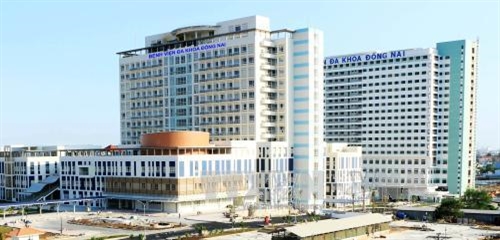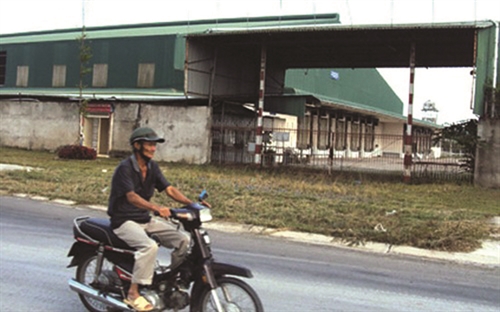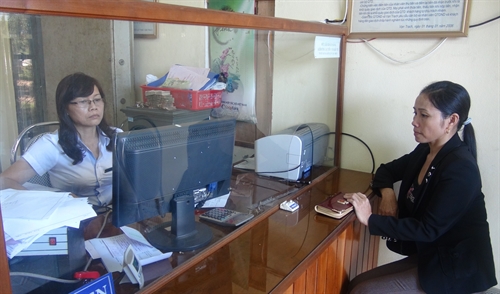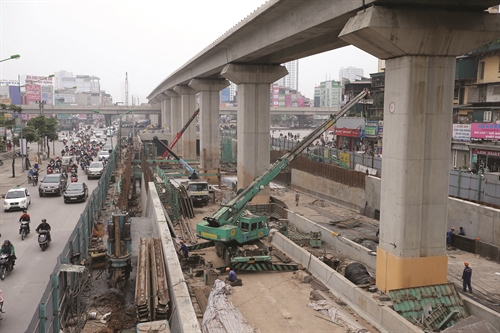Bui Duc Giang
Ph.D in law[1]
One of the fundamental rights of land users recognized by Article 167 of Land Law No. 45/2013/QH13 dated November 29, 2013 (the Land Law) is the right to mortgage their land use rights. In practice, land use rights and assets attached to land (e.g. residential houses or commercial buildings) constitute the category of assets which are by far the most common in secured lending in Vietnam. However, this is a complicated area of law and special care must be taken when taking security over land use rights.
Land use right and land title distinguished
Under Article 53 of the 2013 Constitution, land is owned by all the people of Vietnam and uniformly managed by the State. Therefore, there is no true concept of private ownership of land in Vietnam. The State allocates or rents out parcels of land to named entities for a specific use only. These entities will then be granted a certificate of land use rights and ownership of residential house and other assets attached to land (the land certificate). Land use rights qualify as “patrimonial rights” - one of the four categories of property in accordance with Vietnamese law.
As a result, mortgages attach onto land use rights and not to land directly. It is noteworthy that the term “mortgage” is used in this article for convenience only. Vietnamese law on security does not recognize transfer of land ownership as security.
Prerequisites of taking of security over land use rights
Under Article 188.1 of the Land Law, land users may provide mortgages over their land use rights upon the following prerequisites being first met:
- The land certificate has been obtained over the land in question;
- The land is not subject to any pending disputes;
- The land use rights are not seized in order to secure enforcement of a judgment; and
- The right to mortgage the land use rights is exercised during the land use term.
If land users are entitled to late performance of financial obligations (e.g. payment of land use levies) or their financial obligations are recorded as debts, then they must fulfill those financial obligations prior to exercising their right to mortgage their land use rights (Article 168.1 of the Land Law).
The requirement for the land certificate is in line with Article 4.2.c of Decree No. 163/2006/ND-CP dated December 19, 2006, on secured transactions as amended in 2012 (Decree 163) under which future assets do not include land use rights. As such, it is impossible to take a mortgage over a land use right arising from a land use right assignment contract which has not yet been entered into at the time of the mortgage.
Eligible mortgagees
If the mortgagor is an entity (e.g. a company or a financially autonomous public service organization), the beneficiary of the mortgage can be only a credit institution licensed to operate in Vietnam. This means that offshore banks may not take security over land use rights in Vietnam.
It should be noted that a foreign-invested credit institution established under the law of Vietnam may in principle take mortgages over the land use rights of a local company. However, there are practical obstacles to enforcement where creditors wish to appropriate parcels of land subject to mortgages, due to the lack of clear guidelines on this respect.
If the mortgagor is an individual or a household, the beneficiary of the mortgage can be a credit institution licensed to operate in Vietnam, a non-bank institution (excluding a foreign-invested enterprise) or an individual (Articles 179.1(g) and 3.27 of the Land Law). Pursuant to Article 3.29 of the Land Law, a household (using land) comprises all persons who have a marital relationship, blood relationship or rearing relationship as stipulated in the marriage and family law, currently living together and having the joint land use rights at the time of land allocation, land lease or recognition by the State of the land use rights, or at the time of being transferred the land use rights. It should be noted that the law does not provide further guidelines on the determination of a household, which creates a lot of troubles for lenders in practice. This is why banks are not always eager to take security over real property of households.
As such, with regard to foreign-invested enterprises specifically, the law imposes great restrictions. They may not take mortgages over land use rights of other enterprises or individuals or households.
Secured obligations
As mentioned above, a company may use its land use rights to secure its obligations towards a credit institution licensed to operate in Vietnam (e.g. to secure a loan granted to it or the reimbursement of any amounts payable by a bank to the beneficiary of a guarantee issued at the request of that company). Nevertheless, the law does not specify any other restrictions as to the nature of the obligations of which land use rights may be used to secure the performance.
Under the general law on secured transactions, secured obligations must be financial obligations and they can be the mortgagor’s obligations or those of a third party. However, under Articles 14.1, 71.1 (b) and 160.1(c) of Law on Enterprises No. 68/2014/QH13 dated November 26, 2014 (the Law on Enterprises), a company’s officers will have to demonstrate the interest or benefit(s) acquired by their company when securing a third party’s debt.
Prohibitions
In addition to the restrictions mentioned above, it is not possible to take a mortgage over land use rights in the following circumstances:
- The land subject to the mortgage has been obtained through land lease from the State with payment of annual rentals;
- The land subject to the mortgage has been obtained through land lease or allocation with a view to implementing a project which is not a residential housing one, where land users are exempt from payment of land use levies or land rentals (Article 174.4(c) of the Land Law).
- Land use levies or land rentals paid by a financially autonomous public service organization have been sourced from the state budget;
- Land use rights of entities to which the State allocates land without collection of land use levies (Article 173.2 of the Land Law);
- Land use rights of entities and individuals using land at airports (Article 156.4(a) of the Land Law); or
- Land use rights of religious establishments and communities of citizens using land (Article 181.2 of the Land Law).
Any mortgages which are entered into in breach of those prohibitions are voidable and unenforceable.
Categories of mortgage agreements
In practice, there are four types of land use right mortgage agreements:
- Mortgages over land use rights;
- Mortgages over land use rights and existing assets attached to land;
- Mortgages over land use rights and future assets attached to land; and
- Mortgages over land use rights and existing and future assets attached to land.
Even if the mortgage attaches only to a land use right, the mortgage agreement often states that the secured assets include also (i) all assets attached to land, existing or future, and (ii) all receivables in connection to land.
As for requirements of form, the mortgage agreement must be in writing. It must be either notarized or authenticated by a commune-level People’s Committee (Article 167.3 of the Land Law). In practice, banks often opt for notarization as the legislation on notarization requires notaries to ensure the legality of notarized documents.
A detailed description of the parcel of land subject to the mortgage in the mortgage agreement is necessary to avoid subsequent conflicts. Such description often includes:
- Number of the parcel of land;
- Number of the map (if any);
- Category of land;
- Address of the land;
- Surface area of the land; and
- Duration of the land use.
Banks would be well advised to check the consistency between the information about the parcel of land in the mortgage agreement and the information in the land certificate.
Registration
Article 188.3 of the Land Law provides that,
‘the [...] mortgage of land use rights [...] must be registered with the land registration office and shall take effect as from the time of registration in the cadastral registry’.
This is a registration of a change in the state of the land use rights (Article 95.4 (a) of the Land Law).
Likewise, Article 10.1 (c) of Decree 163 imposes registration of a mortgage over land use rights to ensure its enforceability against the parties to the mortgage while the general rule is that a security interest becomes enforceable against third parties from the date of its registration with the relevant registry (Article 11.1 of Decree 163).
As such, the registration of a mortgage helps ensure its enforceability against the parties to the mortgage and the outside world.
Under Article 7.1(a) of Decree No. 83/2010/ND-CP dated July 23, 2010, on registration of secured transactions as amended in 2012, the time of registration of a mortgage over land use rights is the time of receipt by the registry of a valid application.
Execution of mortgages over land use rights of households
Article 64.1 of Decree No. 43/2014/ND-CP dated May 15, 2014, guiding in detail the implementation of the Land Law (Decree 43) prescribes: “Contracts and transaction documents on land use rights and/or ownership of assets attached to land of households must be signed by the person(s) named in the land certificate or authorized persons in accordance with the civil law”. This means that persons whose names are stated in the land certificate or their authorized representatives will have authority to sign the mortgage.
A further condition is prescribed in Article 14.5 of Circular No. 02/2015/TT-BTNMT of the Ministry of Natural Resources and Environment dated January 27, 2015, under which those persons may sign the mortgage only if all members of the household have given their consent in writing and such written consent has been duly notarized or authenticated.
Under Article 109.2 of the Civil Code, the disposal of property of a large value of a household requires consent of all of its members who are aged 15 years or older.
Reading those provisions together, there are two alternatives for the execution of a mortgage over the land use rights of a household:
- All members of the household sign the mortgage;
- The persons whose names feature on the land certificate or their authorized representatives sign the mortgage to which a notarized or authenticated document attesting the consent of the household members is enclosed as an appendix.
The first alternative appears to be safer and therefore is of common use in practice.
Retention of land certificates
The parties often agree that the mortgagee will keep the land certificate during the mortgage term[2].
Under Article 28.1 of Decree 163, if a land use right is used as security for the performance of several financial obligations, then the mortgagee must hand over such land certificate to the applicant for registration in order to carry out procedures for registration of a subsequent mortgage, except where the creditors have some other agreements about carrying out registration of their secured transactions. Subject to contrary intention of the parties, the certificate must be returned to the initial mortgagee within 5 days from the date of completion of the registration (Article 28.2 of Decree 163).
In case of grant of a new land certificate for reason of land regrouping and exchange, or of measurement to re-determine the area of a parcel of land, where the initial land certificate is being held by the lender as beneficiary of a mortgage, the mortgagor submits to the competent land registration office a copy of the mortgage agreement in lieu of the initial land certificate. The land registration office shall notify the lender of the grant of a new land certificate and certify the registration of the mortgage on the new land certificate. Then a hand-over meeting will be held in the presence of the lender, the mortgagor and the land registration office: the initial land certificate will be handed over to the land registration office and the lender will take possession of the new one (Articles 76.4 and 76.5 of Decree 43). It may happen that the mortgagor becomes uncooperative by refusing to attend to that meeting and the lender may not request the land registration office to hand over the new land certificate to it.
Mortgaging land use rights of companies
Articles 56.2(n), 135.2(k) and 149.2(q) of the Law on Enterprises leave open the possibility for a company’s charter to confer upon such company’s Members’ Council, Board of Management or General Meeting of Shareholders authority to approve any security agreements. Lenders should check whether mortgages over land use rights of the borrowing companies require prior approval of their Members’ Councils, Boards of Management or General Meetings of Shareholders or not.-
Ph.D in law[1]
One of the fundamental rights of land users recognized by Article 167 of Land Law No. 45/2013/QH13 dated November 29, 2013 (the Land Law) is the right to mortgage their land use rights. In practice, land use rights and assets attached to land (e.g. residential houses or commercial buildings) constitute the category of assets which are by far the most common in secured lending in Vietnam. However, this is a complicated area of law and special care must be taken when taking security over land use rights.
Land use right and land title distinguished
Under Article 53 of the 2013 Constitution, land is owned by all the people of Vietnam and uniformly managed by the State. Therefore, there is no true concept of private ownership of land in Vietnam. The State allocates or rents out parcels of land to named entities for a specific use only. These entities will then be granted a certificate of land use rights and ownership of residential house and other assets attached to land (the land certificate). Land use rights qualify as “patrimonial rights” - one of the four categories of property in accordance with Vietnamese law.
As a result, mortgages attach onto land use rights and not to land directly. It is noteworthy that the term “mortgage” is used in this article for convenience only. Vietnamese law on security does not recognize transfer of land ownership as security.
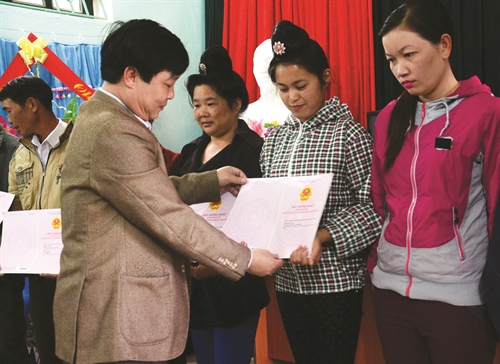 |
| Dien Bien province’s People’s Committee leader hands over land use rights certificates to local households__Photo: Xuan Tu/VNA |
Prerequisites of taking of security over land use rights
Under Article 188.1 of the Land Law, land users may provide mortgages over their land use rights upon the following prerequisites being first met:
- The land certificate has been obtained over the land in question;
- The land is not subject to any pending disputes;
- The land use rights are not seized in order to secure enforcement of a judgment; and
- The right to mortgage the land use rights is exercised during the land use term.
If land users are entitled to late performance of financial obligations (e.g. payment of land use levies) or their financial obligations are recorded as debts, then they must fulfill those financial obligations prior to exercising their right to mortgage their land use rights (Article 168.1 of the Land Law).
The requirement for the land certificate is in line with Article 4.2.c of Decree No. 163/2006/ND-CP dated December 19, 2006, on secured transactions as amended in 2012 (Decree 163) under which future assets do not include land use rights. As such, it is impossible to take a mortgage over a land use right arising from a land use right assignment contract which has not yet been entered into at the time of the mortgage.
Eligible mortgagees
If the mortgagor is an entity (e.g. a company or a financially autonomous public service organization), the beneficiary of the mortgage can be only a credit institution licensed to operate in Vietnam. This means that offshore banks may not take security over land use rights in Vietnam.
It should be noted that a foreign-invested credit institution established under the law of Vietnam may in principle take mortgages over the land use rights of a local company. However, there are practical obstacles to enforcement where creditors wish to appropriate parcels of land subject to mortgages, due to the lack of clear guidelines on this respect.
If the mortgagor is an individual or a household, the beneficiary of the mortgage can be a credit institution licensed to operate in Vietnam, a non-bank institution (excluding a foreign-invested enterprise) or an individual (Articles 179.1(g) and 3.27 of the Land Law). Pursuant to Article 3.29 of the Land Law, a household (using land) comprises all persons who have a marital relationship, blood relationship or rearing relationship as stipulated in the marriage and family law, currently living together and having the joint land use rights at the time of land allocation, land lease or recognition by the State of the land use rights, or at the time of being transferred the land use rights. It should be noted that the law does not provide further guidelines on the determination of a household, which creates a lot of troubles for lenders in practice. This is why banks are not always eager to take security over real property of households.
As such, with regard to foreign-invested enterprises specifically, the law imposes great restrictions. They may not take mortgages over land use rights of other enterprises or individuals or households.
Secured obligations
As mentioned above, a company may use its land use rights to secure its obligations towards a credit institution licensed to operate in Vietnam (e.g. to secure a loan granted to it or the reimbursement of any amounts payable by a bank to the beneficiary of a guarantee issued at the request of that company). Nevertheless, the law does not specify any other restrictions as to the nature of the obligations of which land use rights may be used to secure the performance.
Under the general law on secured transactions, secured obligations must be financial obligations and they can be the mortgagor’s obligations or those of a third party. However, under Articles 14.1, 71.1 (b) and 160.1(c) of Law on Enterprises No. 68/2014/QH13 dated November 26, 2014 (the Law on Enterprises), a company’s officers will have to demonstrate the interest or benefit(s) acquired by their company when securing a third party’s debt.
Prohibitions
In addition to the restrictions mentioned above, it is not possible to take a mortgage over land use rights in the following circumstances:
- The land subject to the mortgage has been obtained through land lease from the State with payment of annual rentals;
- The land subject to the mortgage has been obtained through land lease or allocation with a view to implementing a project which is not a residential housing one, where land users are exempt from payment of land use levies or land rentals (Article 174.4(c) of the Land Law).
- Land use levies or land rentals paid by a financially autonomous public service organization have been sourced from the state budget;
- Land use rights of entities to which the State allocates land without collection of land use levies (Article 173.2 of the Land Law);
- Land use rights of entities and individuals using land at airports (Article 156.4(a) of the Land Law); or
- Land use rights of religious establishments and communities of citizens using land (Article 181.2 of the Land Law).
Any mortgages which are entered into in breach of those prohibitions are voidable and unenforceable.
Categories of mortgage agreements
In practice, there are four types of land use right mortgage agreements:
- Mortgages over land use rights;
- Mortgages over land use rights and existing assets attached to land;
- Mortgages over land use rights and future assets attached to land; and
- Mortgages over land use rights and existing and future assets attached to land.
Even if the mortgage attaches only to a land use right, the mortgage agreement often states that the secured assets include also (i) all assets attached to land, existing or future, and (ii) all receivables in connection to land.
As for requirements of form, the mortgage agreement must be in writing. It must be either notarized or authenticated by a commune-level People’s Committee (Article 167.3 of the Land Law). In practice, banks often opt for notarization as the legislation on notarization requires notaries to ensure the legality of notarized documents.
A detailed description of the parcel of land subject to the mortgage in the mortgage agreement is necessary to avoid subsequent conflicts. Such description often includes:
- Number of the parcel of land;
- Number of the map (if any);
- Category of land;
- Address of the land;
- Surface area of the land; and
- Duration of the land use.
Banks would be well advised to check the consistency between the information about the parcel of land in the mortgage agreement and the information in the land certificate.
Registration
Article 188.3 of the Land Law provides that,
‘the [...] mortgage of land use rights [...] must be registered with the land registration office and shall take effect as from the time of registration in the cadastral registry’.
This is a registration of a change in the state of the land use rights (Article 95.4 (a) of the Land Law).
Likewise, Article 10.1 (c) of Decree 163 imposes registration of a mortgage over land use rights to ensure its enforceability against the parties to the mortgage while the general rule is that a security interest becomes enforceable against third parties from the date of its registration with the relevant registry (Article 11.1 of Decree 163).
As such, the registration of a mortgage helps ensure its enforceability against the parties to the mortgage and the outside world.
Under Article 7.1(a) of Decree No. 83/2010/ND-CP dated July 23, 2010, on registration of secured transactions as amended in 2012, the time of registration of a mortgage over land use rights is the time of receipt by the registry of a valid application.
Execution of mortgages over land use rights of households
Article 64.1 of Decree No. 43/2014/ND-CP dated May 15, 2014, guiding in detail the implementation of the Land Law (Decree 43) prescribes: “Contracts and transaction documents on land use rights and/or ownership of assets attached to land of households must be signed by the person(s) named in the land certificate or authorized persons in accordance with the civil law”. This means that persons whose names are stated in the land certificate or their authorized representatives will have authority to sign the mortgage.
A further condition is prescribed in Article 14.5 of Circular No. 02/2015/TT-BTNMT of the Ministry of Natural Resources and Environment dated January 27, 2015, under which those persons may sign the mortgage only if all members of the household have given their consent in writing and such written consent has been duly notarized or authenticated.
Under Article 109.2 of the Civil Code, the disposal of property of a large value of a household requires consent of all of its members who are aged 15 years or older.
Reading those provisions together, there are two alternatives for the execution of a mortgage over the land use rights of a household:
- All members of the household sign the mortgage;
- The persons whose names feature on the land certificate or their authorized representatives sign the mortgage to which a notarized or authenticated document attesting the consent of the household members is enclosed as an appendix.
The first alternative appears to be safer and therefore is of common use in practice.
Retention of land certificates
The parties often agree that the mortgagee will keep the land certificate during the mortgage term[2].
Under Article 28.1 of Decree 163, if a land use right is used as security for the performance of several financial obligations, then the mortgagee must hand over such land certificate to the applicant for registration in order to carry out procedures for registration of a subsequent mortgage, except where the creditors have some other agreements about carrying out registration of their secured transactions. Subject to contrary intention of the parties, the certificate must be returned to the initial mortgagee within 5 days from the date of completion of the registration (Article 28.2 of Decree 163).
In case of grant of a new land certificate for reason of land regrouping and exchange, or of measurement to re-determine the area of a parcel of land, where the initial land certificate is being held by the lender as beneficiary of a mortgage, the mortgagor submits to the competent land registration office a copy of the mortgage agreement in lieu of the initial land certificate. The land registration office shall notify the lender of the grant of a new land certificate and certify the registration of the mortgage on the new land certificate. Then a hand-over meeting will be held in the presence of the lender, the mortgagor and the land registration office: the initial land certificate will be handed over to the land registration office and the lender will take possession of the new one (Articles 76.4 and 76.5 of Decree 43). It may happen that the mortgagor becomes uncooperative by refusing to attend to that meeting and the lender may not request the land registration office to hand over the new land certificate to it.
Mortgaging land use rights of companies
Articles 56.2(n), 135.2(k) and 149.2(q) of the Law on Enterprises leave open the possibility for a company’s charter to confer upon such company’s Members’ Council, Board of Management or General Meeting of Shareholders authority to approve any security agreements. Lenders should check whether mortgages over land use rights of the borrowing companies require prior approval of their Members’ Councils, Boards of Management or General Meetings of Shareholders or not.-
[1] Email: bui.counsel@gmail.com
[2] Article 717.1 of the Civil Code requires that the land certificate be handed over to the mortgagee while the land law says nothing in this respect. However, it is generally accepted that relevant rules applicable to mortgages over land use rights are contained in the land legislation and not the Civil Code’s provisions (Articles 715 and seq.).
